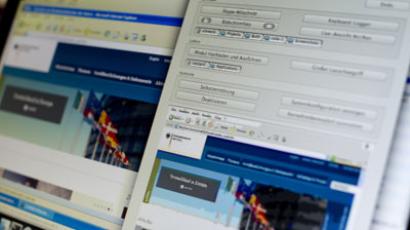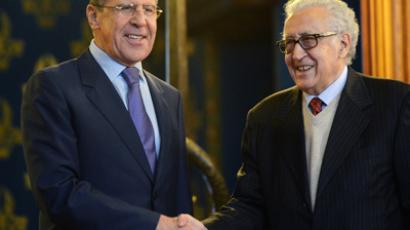No Game: App on bloody Syrian conflict raises ethical questions
Apple won’t back the “Endgame: Syria” app, saying it is “targeting a real government.” Questions remain on how ethical it is to simulate an ongoing conflict, with RT’s Egor Piskunov - who’s tested the game - saying it lacks objectivity.
“Endgame: Syria” has been rejected by Apple’s App Store as it violates the company’s guideline policy, which prohibits games to “solely target a specific race, culture, a real government or corporation, or any other real entity.”The game, launched by UK’s Auroch Digital in December, simulates situations in the Syrian conflict with regime’s forces on one side and the rebels’ forces on the other.The player is allowed to take the rebels’ side only.The developers have argued that the product offers a unique medium for understanding the situation in Syria as it “reflects events happening in the real world.” The game, which the developers claim is “based on research from a wide range of sources”, is also said to have multiple endings depending on player’s choices.It is “definitely unethical” to make a computer game out of an ongoing conflict, where thousands lives have been lost, RT’s Egor Piskunov said on completing “Endgame: Syria.”But Auroch Digital team has a different opinion, as they plan to resubmit the game to Apple. It possibly involves changing the actual term “game” to “simulation,”“exploration,” or “interactive guide” to make people “more comfortable,” as the team’s creative director said in a launch trailer.It is questionable, though, if the game has really been based on objective media reports, as some aspects of the game play contradict such a statement, Piskunov said.In an effort to simulate the political picture around the Syrian conflict, the game puts countries like Russia among those who openly support the regime.
Back in the real world, Russia has repeatedly said that it is not taking any sides in this conflict.“This is one of the points which make you doubt how objective this game really is,” Piskunov stated.Another point is that the peaceful solution is not really “popular” with the side the player is playing for.“The game itself says that even if the player takes this option, does go for this peace treaty then he wouldn’t really gain that much respect points from the ‘rebels’ – and you’re always playing one side. You can’t take the side of the regime,” Piskunov explained.However, you can freely supply weapons to the ‘rebels’ from some virtual Western states, he added.While the gamers are trying out a virtual interpretation of the conflict, Syrians face a much grimmer reality with a total of 60,000 killed and nearly 600,000 having had to flee their land. At least 1 million people are also said to be starving, with UN humanitarian aid unable to reach them.The real life international community is struggling to find a solution to the Syrian conflict and a trilateral meeting of Russian and American diplomats, along with the UN and Arab League envoy for Syria Lakhdar Brahimi, is scheduled for Friday.














